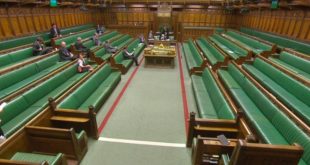This week one of each of the three categories of online gaming licences in Pennsylvania became available as Rivers Casino withdrew its applications (slots, table and poker); these can be added to seven further licences still unclaimed, applications for which close at the end of the month. So far, therefore, only 74% of the available supply in PA has been taken up (with Rivers’ owner Rush Street still in the mix with SugarHouse). While it might be tempting to blame Pennyslvania’s extensive licensing and online slots tax regime for this relative lack of demand, it is noteworthy that a similar situation exists in neighbouring but much more liberal (by US standards) New Jersey, where only 19 ‘skins’ are active (across eight online partner-operators) out of a possible 40: i.e. less than 50% total (theoretical) take-up. While some of this is ‘strategic’, in essence it points to greater licensing supply than demand for both licensed online casino states – which in turn begs two important questions.
The first is the value of partnerships. We have commented before that ‘skins’ make land-based access much less strategic from a licensing perspective than first appreciated. Logically, when skins are combined with tough fiscal-regulatory regimes, then take-up should be even lower. However, NJ demonstrates that even liberal fiscal-regulatory regimes (relatively) can leave a significant supply overhang. While sports betting is different to gaming, we would suggest that its main difference is that higher costs and complexities lead to a more concentrated set of winners (ie, greater levels of market share in a few operators). In other words, barriers to success are far higher than barriers to entry, in betting and gaming, but especially for betting. The problem with this logic is that the market seems to be shaping up as if the opposite were true: entry is the true test, with success following the happy few as a quasi- (or real) oligopoly (or else why give so much away to incumbents). Many online-led operators are therefore potentially left with a dangerous choice: over-pay or don’t play. The licence overhang suggests that this issue will wash through, but it remains unclear to what extent patience will be rewarded (and patience is a trait the online sector is not famous for).
The second question is around consumer choice. Mass market consumers can be well serviced by a handful of sites, so long as they are operationally competent (and have the ability to reach customers effectively). However, heavy users typically want a supplier choice running into the dozens. This is barely being provided in the current structure in NJ, in terms of either quantity or quality, and it looks as though PA will be worse (especially given that 13 of the licenses are for poker in a market that can probably economically support a maximum of four providers, and really only one). A dangerous position for state online licensees find themselves in, therefore, is fighting over heavy users which are likely to be leaking into the .com environment, while lacking the critical mass to effectively appeal to the mass market (because individual state markets tend to be too small, especially if heavily taxed and regulated, and with different ‘winners’ in each). In these circumstances, domestically licensed online gambling in the US remains a specialist (and fragmented) niche, rather than a real consumer alternative (perhaps with the hidden consequence of partially protecting land-based revenues).
These two issues can both be combated by the same thing, in our view: online operators building critical mass (operations, brand, liquidity) across states rather than simply within them. However, a combination of disjointed state regulation and land-based-led strategic partnerships both militate against this (the latter by 1. over-paying for access; 2. prioritising unproven omnichannel needs over winning online; 3. managing JVs, which rarely work effectively operationally). Curiously, while the former is just dealing with emerging US regulatory realities, the latter problem seems to be actively exacerbated by a critical mass of online hopefuls (as well as the lobbying of land-based operators and agencies – perhaps unsurprisingly).
There is no easy fix to these problems (though we think they make PPB’s TVG-FanDuel positioning look smarter than the MGM / Eldorado deals), but they do lead us to reiterate two key points of caution on the emerging US real money online market: first, it is a lot more fiddly than the hype might suggest, and; second, the US incumbents seem to be playing a bad hand extremely well, at the expense of European hopefuls.
UK: Politics – Mamma Mia! Gambling faces it’s Waterloo at Tory conference
Theresa may be the Dancing Queen but the name of the game for gambling this week at the Tory conference in Birmingham was (depressingly) still the FOBT. The think tank Respublica hosted a fringe event at the start of the week to address the question of when the reduction in maximum stakes on machines on betting shops would come into effect. Last year, both the Labour and Conservative conferences featured some feisty encounters on gambling policy but the fizz appears to have gone out of this year’s vintage.
Based upon reports from Birmingham, there was little dissent as some of the chief prosecutors of the case against the FOBT – bacta, the CEBR, the LGA and Respublica – considered the question of whether the stake cut should be a 2019 or 2020 event. Richard Evans (Cons, Gloucester) joined in proceedings as the token (but perhaps not all that bothered) Member of Parliament.
More concerning perhaps were indications that industry interest from some of these groups is likely to be sustained precisely because the FOBT saga proved to be such a jolly wheeze. With the hunt on for the next cause Celebre, it may be time to send out an SOS.
UK: Advertising regulation – Regulators search for weapons of ad destruction
If you can’t find a smoking gun, rattle a sabre. That at least seemed to be the lesson from the world of gambling policy this week. At Wednesday’s KnowNow conference on socially responsible marketing in the gambling industry, the Gambling Commission’s Ian Angus warned operators that “a storm is gathering” in relation to marketing and advertising; and that public and political disquiet may yet result in state intervention.
Angus was followed by Andrew Taylor of the Committee on Advertising Practice, who advised attendees that a review of advertising standards for gambling was likely to take place next year once research into the effects of advertising on children has been published.
At one point conference attendees appeared to be in danger of drowning, such was the level of regulatory drooling at the prospect of damning evidence; but then salvation arrived from a rather unexpected quarter. GambleAware has commissioned the research on advertising and children and has indicated that it would favour greater curbs. However, the charity’s deputy CEO, Iain Corby warned (rightly) that the series of studies was unlikely to result in the kind of conclusive and definitive evidence that some appear to expect. There was something rather quaint about Corby’s advice: he is of course correct to take a cautious view on the chances that any one study will reveal ‘truth’ on such matters; but these days moderation in matters of regulation and politics seems so passé.
UK: Horse racing – Impulsive actions
Racehorse owner Craig Buckingham was left reeling after an administrative error (made by stewards at Nottingham racecourse before the £25k Grassroots Sprint Series Final), saw his runner, Magic Pulse, withdrawn erroneously without rectification at the starting stalls. The mistake left Buckingham threatening to turn his back on the sport. However, having been on the wrong side of racing’s organization on Wednesday, he had better ‘luck’ on Thursday with his runner Desirable Court, the only starter of the Beginners Chase at Warwick (and therefore inevitable winner!).
While these organizational challenges may make amusing anecdotes for racing fans, it is arguably not a good advertisement for the sport – particularly for potential owners (arguably racing’s biggest supporters). In trying to please all parties (the punter in the case of Magic Pulse, and the racecourse in the case of Desirable Court) it is alienating all supporters. While the issue of unsatisfactory stewarding is being addressed, there is still a problem with attracting too few runners to certain types of races which certainly needs a rethink for the benefit of all parties.
Denmark: Q218 online revenue – Strong growth, but underlying slowdown
Denmark reported strong overall commercial gambling growth in Q2 of 11.5% to DKK1,630.3m (€212m), with online growing at 21% to DKK968m (€126m) and land-based broadly flat at DKK663m (€86m). Within that, betting was by far the strongest growth contributor, benefiting from the World Cup (in which Denmark was a credible group-stage contender knocked out by Croatia before the quarter finals), with online growth of 24% and land-based growth of 5%. Gaming, which did not benefit from the WC fillip, nevertheless grew by 17.4% online, though continued to decline in land-based (machines -8.7%; casinos -4.1%). Denmark therefore continues a pattern of mature market channel shift, though in this period has bucked a trend of lower online growth. Encouragingly, this is broadly based across products and (mostly) not event/margin driven. However, overall medium term growth trends remain less bullish: 2.2ppt growth slowdown in 2016 followed by a 1.1ppt slowdown in 2017, to firmly single-digit underlying across channels (tellingly cross channel gaming growth for Q218 was 4.5%, probably a better indicator of underlying trends than some of the more hopeful signals).
Greece: H118 online revenue– Dysfunctionally functioning
The Greek press has reported what appear to be official figures for the ‘temporary’ domestically regulated online gambling, showing H118 revenue of €182.8m; on a proxy for H117 figures, this would suggest growth of c. 40%, an acceleration on 2017 growth rates of 30% and likely a combination of the World Cup, relatively weak comps and the return to strong growth of Sportingbet (GVC). The figures also underline our thesis that growth rates are now much stronger in Southern Europe than Northern, albeit from a much lower base (eg, run-rate online revenue per capita for Greece is €34 – broadly in line with Italy, much larger than Spain and Portugal but only 40% that of Denmark.
The Greek market is functioning relatively well, notwithstanding the temporary nature of the regime, only 24 licenses (suggesting material leakage, especially in gaming) and a GGR tax at the upper end of commercial viability (35%). However, as previously reported, Greece’s proposed permanent plan to tax winnings at 20% and effectively ban RNG products (c. 40% of the market, we believe) is likely to reverse this trend, with much greater levels of leakage and likely a shrinking domestic base.
Japan: Arcade sector – VAT man comes robin
Japan’s battle to reignite its economy and address structural issues has led to government plans to hike VAT by 2ppts to 10%, largely implemented next year but early for some items, including gaming machines. This week, not only did the IMF intervene (verbally) to caution a smooth transition, but Japan’s arcade sector also voiced its concerns. The additional tax burden will have to be absorbed by coin operated machines, with the fiscal benefits of cashless offset by both the costs of installation and the uncertainty of consumer take-up. The arcade sector in Japan has nearly halved in a decade to c. 14,000 outlets and has gone from being a relatively mainstream consumer activity to something of a niche – some operators believing the end is now nigh. The Japanese government probably did not consider the impact on its arcade sector when it made the changes (for very long, if at all), but that in itself is telling – casual land-based gambling increasingly seems to be an acceptable casualty of ‘bigger decisions’ in most parts of the world – that is where it is not being actively attacked and dismantled…
Trade shows: Perception management – Less on show
Clarion Gaming, operator of the ICE London trade show, has issued a Code of Conduct (more of a dress code) for promotional staff, effectively banning attire of an overly sexual nature as well as little to no attire at all (a week before the typically less racy G2E kicks off in Vegas). It is hugely important that gambling treats all stakeholders with respect, and as a sector often at the cutting edge of moral disapproval, it must be beyond reproach for extrinsic as well as intrinsic reasons. However, while we wholeheartedly welcome the decision, we remain cautious on the often shrill and finger-wagging tone that led to this decision: it might have produced the right result this time, but virtue signalling competitions are likely to detract from both having fun and protecting the vulnerable…
UK: Esports – Blurred lines
A partnership between the English Premier League and Gfinity to create the ‘ePremier League’ is another step closer in an ever-growing relationship between some real sports and their gaming equivalents. The league is to begin in January next year, with a final to be held in March using the FIFA 19 game title, with EPL teams fielding eSports players. The announcement was significant for Gfinity, which, to date has struggled to land any meaningful contracts (from a revenue vs. PR perspective), this arguably being the largest profile for eSports in the UK.
The partnership raises three interesting questions in our view. First, it will test the theory that ‘traditional’ activities can engage a Millennial audience through gaming – so far more enthused over than delivered. Second, if the partnership is properly successful, then it is likely to become a test case for thorny issues of IP, in our view (who owns what and how they get paid). Finally, gambling is already in the room as shirt sponsors to large swathes of the EPL (reflected in the FIFA game, age guide 13+), the extent to which this can be extended into the “ePL”, and the extent to which betting on the events will be encouraged will also be an important operational and potentially regulatory test.
Global: Match-fixing – Anichebe lifts lid on Chinese football culture
Former Everton, Sunderland and West Brom striker, Victor Anichebe, has blown the whistle on his current Chinese football club, Beijing Enterprise, saying he was told by his coaches on two occasions “not to try”. Reportedly, Anichebe queried the instruction and was told by teammates that “this is China, you do as you’re told”. Anichebe has been in dispute with his club (and hasn’t played) for a year (it is unclear whether the dispute relates to other matters as well), and he has now taken the matter to FIFA (and, apparently, the press).
Blowing the whistle is usually a brave and not entirely straightforward step to take. There should be an obligation on the part of the governing body to take any whistleblower seriously and at face value, and to protect them while investigating any allegations made. The challenge which FIFA officials will no doubt be aware of is that, with the suggestion having been made that this could be a widespread problem in Chinese football, they pull at this particular thread without knowing where it might take them… Those for whom integrity is a non-negotiable will be hoping that challenge doesn’t discourage them from doing anything at all.
Global: M&A Watch – Sazka; Française des Jeux
- It has been reported that Sazka Group (Czech Republic) has postponed plans to float on the London Stock Exchange due to the “volatile market environment”
- L’Assemblée Nationale has approved the privatisation of the French government’s stake in Française des Jeux









